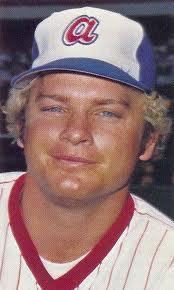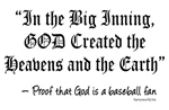
Horner was known for the fact that he never played a minor league game in his career. He was taken by the Atlanta Braves as the number 1 overall pick in the 1978 draft on 6/6/78. He immediately entered the Braves lineup and won the NL Rookie of the Year, hitting .266, 23, 73 in 89 games. Horner would hit 30 plus HR in 1979, 1980 and 1982, as 1981 was the season shortened due to the players' strike. Horner earned himself a 4 year contract with the Braves, getting $5.1 million over the term of the deal. While Horner was injured for a major part of the 1983 and 1984 seasons, he managed to hit .267, 27, 89 in 1985 and .273, 27, 87 in 1986. But after 1986, his contract was up. Horner initially was a 3B, but injuries had moved him across the diamond to 1B. The Braves were ready to move forward with Gerald Perry as their 1B despite the latter only being two years younger.
With the Braves deciding not to bring back Horner, it meant he would be a free agent for the first time in his career. The only problem was it was during the center of the collusion scandal led by Commissioner Peter Ueberroth. A player like Horner was entering the late prime of his career. Horner had turned 29 the prior August and had averaged 30 HR a season when healthy. Even if the Braves wanted to move on, there were several teams that could use a power hitting 1B. Even with the health concerns, an American League team could benefit from Horner's bat as a designated hitter.
Because of the collusion, Horner was left without a major league contract for the 1987 season, instead signing a deal with the Yakult Swallows of the Japanese Central League. After the 1988 season, he signed a 1 year deal with the St Louis Cardinals to replace Jack Clark. After a down season, .257, 3, 33 in 60 games, he was released by St Louis to never appear in a MLB game again. He was just 31. It is clear the collusion derailed his career. Obviously, it is impossible to tell whether Horner would have maintained his success but it is fair to say the collusion affected him. Would Horner had another 8 seasons and 20 plus HRs every season? Probably not. But this was a player who never played a game in the minors. He had more serviceable seasons left, and it was derailed after he was not offered a contract after the 1986 season. Had that not happened, I think Horner would have lasted at least a couple years more than he did.

 RSS Feed
RSS Feed
